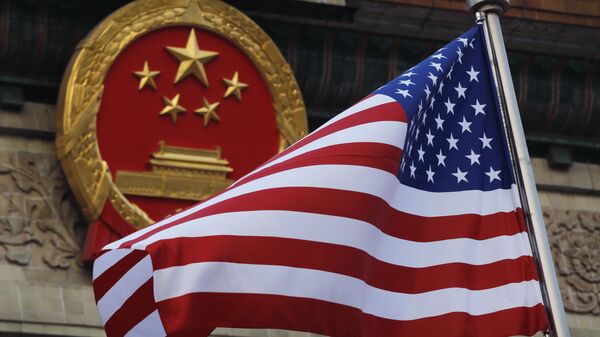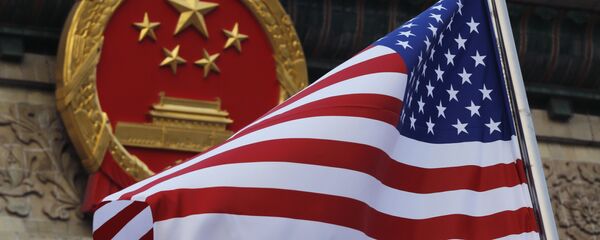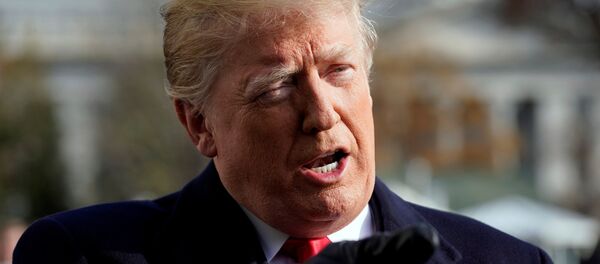Sputnik has discussed the issue with Christopher Bovis, professor of international and European business law at the University of Hull in England.
Sputnik: Steven Mnuchin, the US treasury secretary, is optimistic about the significant progress after these US-China talks; although a lot of experts are saying it is really far to a breakthrough. Looking at some of the events of recent days, with the US pressing charges officially against the Huawei CFO, and a lot of other factors, what are your thoughts and what do you forecast for these US-Chinese negotiations?
Christopher Bovis: It will be an uphill struggle for a number of reasons. Time is of significant importance here, but the most important thing to remember also is what is at stake.
At stake is a huge deficit, which is caused by a number of underlying features and factors that need urgent attention. One is intellectual property.
The sticking point is intellectual property protection on the part of China and the recognition of copyrights and patents in their territories and the application of know-how transfer. This is the most complex issue to negotiate in any deal.
The fact that the other party, China, is not ready yet to talk to the same level, the same amount of detail, the same language, in terms of recognizing IP rights, recognizing copyrights and patents and applying similar or identical patents to knowledge transfer as applies in the United States of America.
That is sticking point number one. The second thing, the most important thing that we need to remember here, is that although China opened its way into reform into the 40th celebration of the reform and open agenda, we still have a long way to go, because it has not created open access to the financial markets and this is where the gesture is.
This is the attitude that the United States administration is looking to move forward: access to the financial markets and full convertibility of financial instruments.
Christopher Bovis: A huge interest. It has a huge interest for two reasons. First, because it is the same replica situation with NAFTA, the North American Free Trade Agreement, last summer with the Canadians. All of a sudden, within a very short period, the president of the United States proposed a very good comprehensive agreement that was agreed in record time by Canada and Mexico.
So it gives me some comfort that, at least on the highest level, the [US] president’s level and President Xi’s level, you could have a rapprochement and a kind of alignment of thoughts into a legal document that creates the new generation of agreement of trade goods and services between the two countries.
I am optimistic about that, but it is the last resort. There is a lot of water to go through the bridge yet, and perhaps we need to wait until summer to see some results on that front.
Sputnik: But if no headway is made this time around, do you think there is a chance that we will see the restoration of a sanctions regime prior to there being a resolution in the future, perhaps this summer?
I don’t expect a kind of continuation or escalation of the trade war that happened before with tariffs, because tariffs and the imposition of tariffs create huge friction in both economies.
The results are not beneficial for the consumer. You and I, as the consumer, will be detrimentally affected by the tariffs. And of course, the United States administration has many things, many fires [and] many specific issues at stake at the moment.
So the last thing it would do is create another prolonged trade war with a major partner, one of the biggest economies in the world, China, in terms of access to the market and also creating some barriers to trade based on tariffs. That is old technology, that is old news and we have to move away from that.
Sputnik: These talks are interesting; the timing of them, the US and China are on opposing sides of the Venezuelan crisis. Do you think that that is actually going to play any role or impact the talks in any way?
And the Venezuela situation will create and escalate into some degree of either diplomatic resolution or some degree of a standoff between the two parties that relates to the underpinning situation, which is the oil. You know the reserves that Venezuela has are imperative for not only for themselves but for the stability of the energy policy around the region.
China also has a lot at stake in terms of accessing very affordable oil for their own domestic products.
Views and opinions expressed in this article are those of Christopher Bovis and do not necessarily reflect those of Sputnik.





